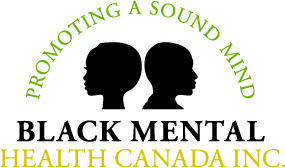Introduction
Bipolar disorder is a complex mental health condition that affects millions of people worldwide, regardless of race, ethnicity, or gender. However, it’s essential to recognize that the experience of bipolar disorder can vary among different groups, including Black men. In this blog, we’ll explore how bipolar disorder may manifest differently in Black men and the unique challenges they may face.
The Basics of Bipolar Disorder
Bipolar disorder, formerly known as manic-depressive illness, is characterized by extreme shifts in mood and energy levels. These mood swings can be divided into two main phases:
- Manic Episodes: During a manic episode, individuals may experience intense euphoria, increased energy, impulsivity, and a decreased need for sleep. They may engage in risky behaviors and have difficulty focusing.
- Depressive Episodes: Depressive episodes are marked by feelings of extreme sadness, hopelessness, low energy, and a loss of interest in activities. Individuals with bipolar disorder often struggle with maintaining daily routines during depressive episodes.
How Bipolar Disorder Can Look Different in Black Men
- Stigma and Cultural Factors: Black men may encounter unique challenges related to cultural stigma surrounding mental health. Societal expectations of strength and resilience can discourage them from seeking help, leading to delayed diagnosis and treatment.
- Misdiagnosis and Overdiagnosis: Bipolar disorder can be misdiagnosed as other conditions, such as attention deficit hyperactivity disorder (ADHD) or conduct disorder, in Black boys. Conversely, there can be instances of overdiagnosis, where normal behaviors are pathologized due to racial biases in healthcare.
- Impact of Racial Trauma: Experiences of racial discrimination, inequality, and trauma can exacerbate symptoms of bipolar disorder in Black men. These experiences may contribute to increased stress, anxiety, and mood instability.
- Limited Access to Mental Health Care: Disparities in access to quality mental health care can affect Black men’s ability to manage bipolar disorder effectively. Financial barriers, lack of culturally competent care, and healthcare disparities can hinder their treatment options.
- Stressors Unique to Black Men: Socioeconomic disparities, discrimination, and the burden of systemic racism can add significant stressors to the lives of Black men, potentially triggering or exacerbating bipolar symptoms.
Support and Solutions
- Cultural Competence in Mental Health: Healthcare professionals should receive cultural competence training to understand the unique challenges and experiences of Black men with bipolar disorder.
- Community and Peer Support: Encouraging open conversations about mental health within Black communities and providing peer support can help reduce stigma and promote early intervention.
- Access to Quality Care: Advocacy for improved access to mental health services and affordable healthcare can make a significant difference in the lives of Black men with bipolar disorder.
- Education and Awareness: Raising awareness about mental health issues specific to Black men and sharing stories of resilience and recovery can help break down stigma and encourage seeking help.
Conclusion
Bipolar disorder can manifest differently in Black men due to a complex interplay of cultural, societal, and healthcare factors. Recognizing these differences and addressing the unique challenges they face is crucial for early diagnosis, effective treatment, and improved overall well-being. By promoting understanding, reducing stigma, and improving access to quality care, we can better support Black men living with bipolar disorder on their journey toward mental health and stability.



